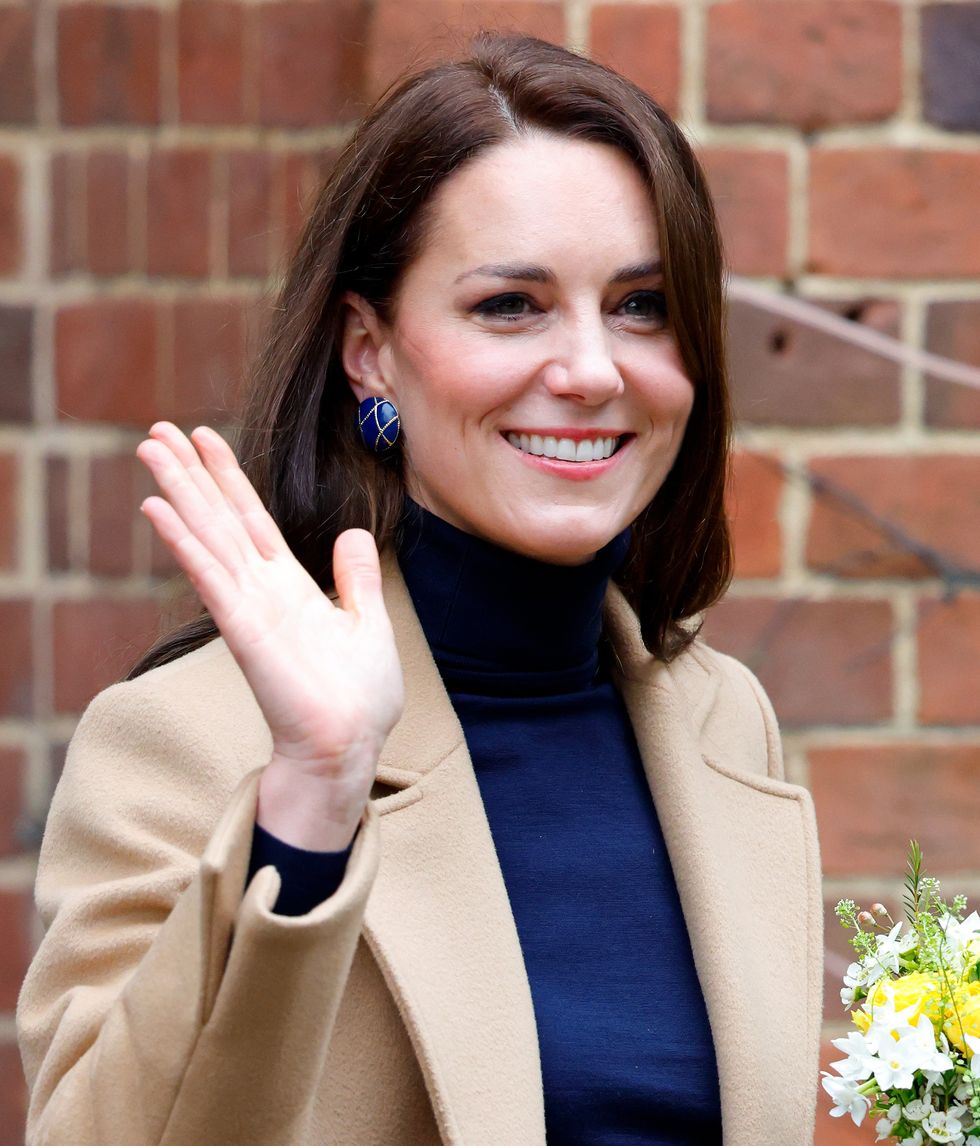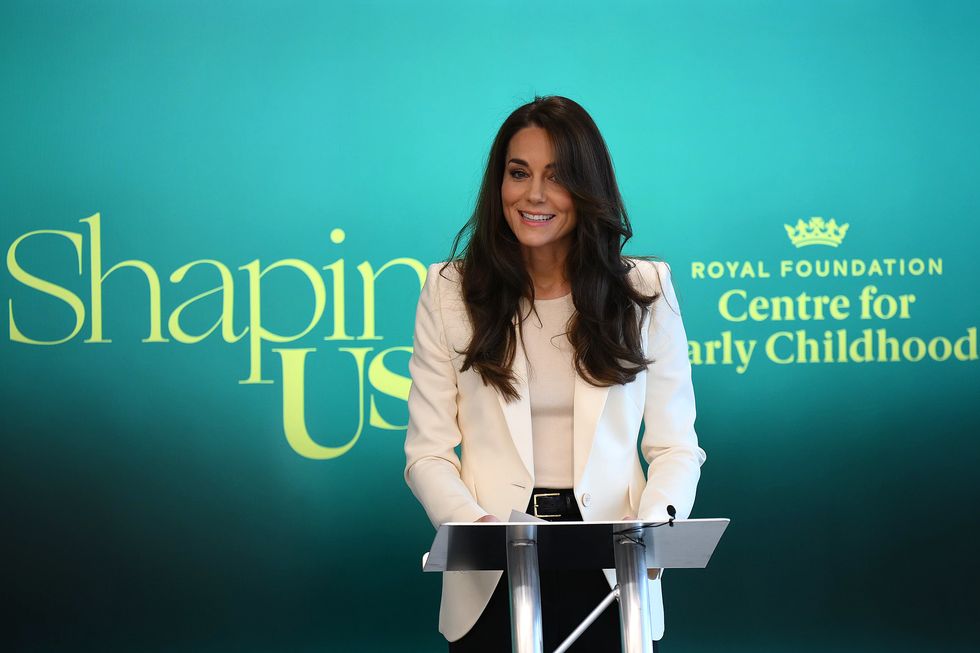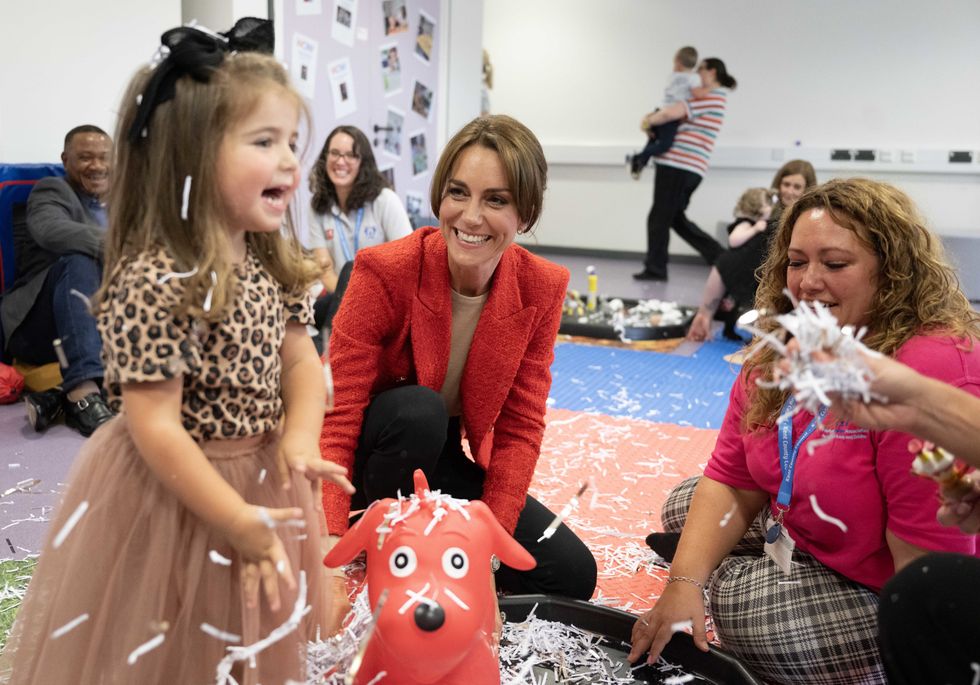Princess Kate’s Royal Foundation Centre for Early Childhood has announced a major expansion of its pioneering baby assessment programme to eight additional NHS sites across the UK.
The £210,000 initiative will extend the Alarm Distress Baby Scale (ADBB) trial following overwhelmingly positive results from its first phase last year.
The expansion will enable thousands more families to benefit from the programme, which helps health visitors assess infant wellbeing during routine checks.
The trial will be implemented across various regions, including sites in Scotland, Wales, Northern Ireland and England, through March 2026.

Princess Kate ‘thrilled’ amid latest update from Kensington Palace
Getty
The Princess of Wales is understood to be thrilled with the expansion of the ADBB trial, which continues her dedication to early years development.
A spokesperson told GB News: “The work of the Centre for Early Childhood continues to shine a light on just how important the first five years of life are for any baby and the role we can all play.”
The princess has remained engaged with the Centre’s work throughout her recent treatment and recovery period.
Early childhood development and social-emotional well-being will continue to be a key focus of her work as she gradually returns to royal duties.
The second phase will evaluate the tool’s impact and examine how parents experience its implementation.
The ADBB tool focuses on evaluating babies’ social behaviours during routine health visitor checks at six to eight weeks.
Health visitors assess key indicators including eye contact, facial expressions, vocalisation and activity levels to understand how infants are bonding with their parents.
The assessment helps practitioners and families better understand the ways babies express their feelings and develop nurturing relationships.
 Princess Kate has been devoted to research about the early years for a long timePA
Princess Kate has been devoted to research about the early years for a long timePAThe tool is particularly crucial during babies’ earliest weeks and months when their brains are developing faster than at any other time in their lives.
Support provided during this critical period can have lifelong impacts on infant development and well-being.
Princess Kate first encountered the ADBB tool during an official visit to Copenhagen in 2022, where she observed Danish health visitors using the system.
Impressed by its effectiveness, the princess explored implementing a similar approach in the UK. The Centre for Early Childhood subsequently partnered with the Institute of Health Visiting and Oxford University to test a modified version of the tool.
 Princess Kate has made the early years sector a cornerstone of her workPA
Princess Kate has made the early years sector a cornerstone of her workPA
The first phase of the trial, which examined the feasibility of incorporating the assessment into routine six to eight-week health visitor checks, produced overwhelmingly positive results.
Health visitors reported more effective conversations about infant wellbeing and observed stronger parent-child interactions.
Christian Guy, Executive Director of The Centre for Early Childhood, said: “We know that warm, loving, responsive interactions with those closest to them during the earliest weeks and months of a baby’s life are crucial in promoting positive brain development. Health visitors do such a vital job in our communities. I am delighted that we are now able to give more teams across the UK the support they need.”
Alison Morton, Chief Executive of the Institute of Health Visiting, commented: “As we know, babies can’t talk, but there is significant evidence that their early experiences influence their future outcomes. The expansion will allow us to consider its future implementation and sustainability, and ensure more families get the right support and babies can thrive.”